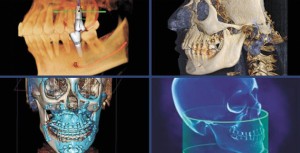 Advanced Technology Enables Superior Dental Care
Advanced Technology Enables Superior Dental Care
Dental x-rays, also known as radiographs, are one of the most important tools a dentist has when providing thorough dental care. When taken as part of an oral examination, they help provide your dentist with a more complete view of what exactly is happening inside your mouth, beyond what the eye can see.
They help detect tooth decay that develops between teeth or under restorations (fillings), diseases in the bone, periodontal (gum) disease, infections, and even some types of tumors. Particularly useful in allowing the dentist to ensure children’s teeth and jaw bones are developing properly, dental radiographs make it possible to identify disease and developmental issues before they become serious problems.
DENTAL RADIOGRAPHS ARE SAFE
Some people question the safety of radiographs because they expose the patient to radiation. Several factors and practices work together to ensure radiography is safe for each patient.
First and foremost, you must understand that the amount of radiation used to obtain dental x-rays is a very small amount. For example, taking two to four images of the back teeth exposes patients to about 0.0005 millisieverts (mSv) of radiation. By comparison, because radiation is part of our every day environment, Americans are exposed to an average of 3.2 mSv every year from background sources of radiation. Digital dental radiographs, like the kind our dentists use, results in an even lower amount of radiation exposure. In fact, digital dental radiographs are safer due to 90% less radiation than the older film-type images.
Village Dental is proud to be one of the first offices to use the newest, state-of-the-art, ICat in additon to digital dental x-rays. Recent advances in technology now enable our dentists to reduce radiation exposure even further by using digital equipment and no longer relying on the outdated film images.
Digital radiography, replaces the film with a digital dental x-ray sensor. The digital x-ray sensor receives the x-rays in much the same way as a film does, but instead of developing the film in a dark room, the digital dental x-ray sensor sends the image directly to a computer. One of the biggest advantages of digital dental x-rays is that the computer digitally compares an image to previous images. This process allows a computer to subtract everything out that is the same in two images, only leaving anything that is different. This process, known as subtraction radiography, is capable of highlighting the tiniest of changes, enabling a dentist to intervene earlier and preventing further damage. The advanced digital technology makes the process of obtaining quality dental x-rays faster and more convenient for both the dentist and the patient.
Because of the low radiation exposure of digital dental radiographs, even patients who have received radiation treatment for neck and head cancer can still have dental x-rays taken. In fact, neck and head radiation treatment increases the risk of developing tooth decay, making dental radiographs even more important for these patients.
Dentist always follow the “As Low As Reasonably Achievable” principle when obtaining radiographs. This limits patient exposure by incorporating the following techniques: use of the fastest image receptor, reduction in the size of the x-ray beam to the size of the image receptor whenever possible, use of proper processing techniques, use of lead aprons and thyroid collars (to shield your organs from the radiation). By using the digital x-ray technology, our dentists ensure that patients are exposed to the lowest amounts of radiation as possible.
Your dentist will determine when and how many radiographs are needed based on your examination, symptoms, a review of your oral history, your risk of developing oral disease, and your age. If you are seeing a new dentist, be sure to provide copies of your existing dental x-rays, if you have any, to avoid duplicating them and unnecessary radiation exposure.
Village Dental
352-205-7667 or 352-753-7507
Check Also
Recurrent UTIs: Addressing the Risk of Antibiotic Resistance
Urinary tract infections (UTIs) are common bacterial infections that affect millions of individuals worldwide each …
 Central Florida Health and Wellness Magazine Health and Wellness Articles of the Villages
Central Florida Health and Wellness Magazine Health and Wellness Articles of the Villages



